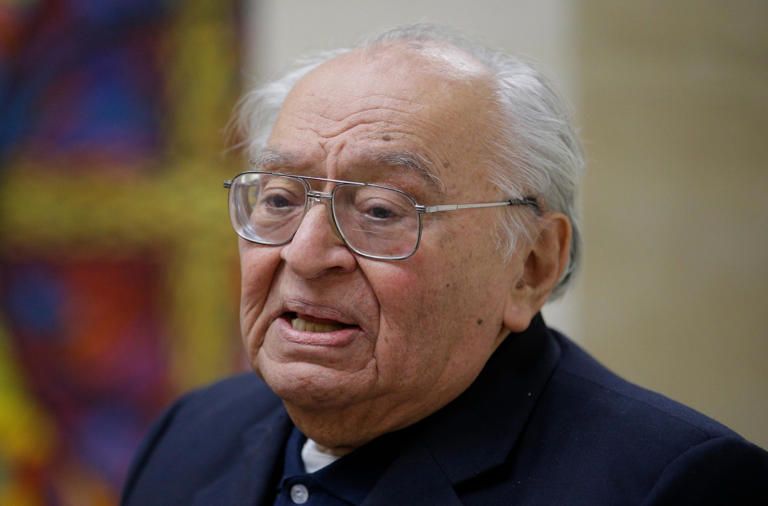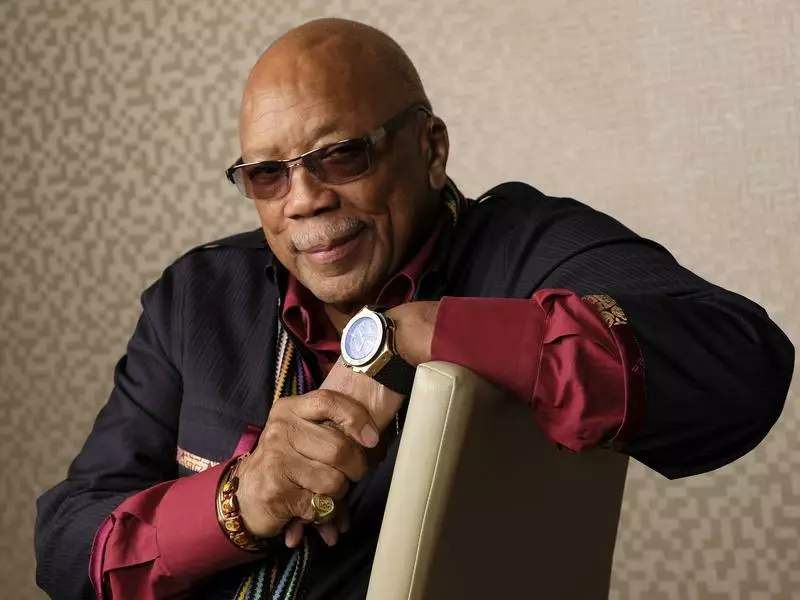Gustavo Gutiérrez, The famous Peruvian priest, Dies in Lima at 96: Remembering His Legacy
Gutiérrez was not just a priest; he was also a theologian and a Dominican friar.
Oct 23, 2024 / GMT+6
Gustavo Gutiérrez, a well-known Peruvian priest, has passed away at the age of 96 in Lima. He was famous for his strong belief in helping the poor and is often called “the father of liberation theology.” Many people also called him a “prophet of the poor” for his work in supporting those in need.
More topics for you...This topic continues below.
China reports record $1.2 trillion trade surplus for 2025, defying Trump's tariffs.
A Lifelong Fight Against Poverty
Gutiérrez was not just a priest; he was also a theologian and a Dominican friar. He believed that the church should stand by the poor and help improve their lives.
His ideas became popular in Latin America during the 1960s and 1970s, a time filled with social and political challenges. Gutiérrez argued that the church had a responsibility to push for important changes to end poverty.
In his famous book, A Theology of Liberation, published in 1971, Gutiérrez wrote, “Only authentic solidarity with the poor and a real protest against the poverty of our time can provide the concrete, vital context necessary for a theological discussion of poverty.”
This book opened many eyes to the struggles of the poor and urged people to take action.
Inspiring Change Through Action
His ideas inspired many priests and activists. Some priests who followed his teachings actively joined the fight during the Sandinista revolution in Nicaragua in 1979.
They opposed the right-wing dictatorship of Anastasio Somoza. Gutiérrez’s thoughts also reached leftist groups in Mexico and Colombia, where some rebels were led by a defrocked priest, Manuel Pérez, for almost 30 years.
The Dominican Province of St. John the Baptist in Peru announced Gutiérrez’s death. They shared that he “went to Our Father’s house” on a Tuesday. His body will be displayed at the Santo Domingo convent in Lima, allowing people to pay their respects.
The Instituto Bartolomé de las Casas, which Gutiérrez founded in 1974, honored his legacy. They said, “His writings and work on behalf of the poor and the most forgotten in society will continue to light the church’s way as it searches for a fairer and more brotherly world.”
This highlights how important his work was for many people and communities.
Austen Ivereigh, a Catholic journalist, remembered Gutiérrez on social media. He called him a “Peruvian shanty town priest” who reshaped modern theology with his work. Gutiérrez’s approach placed the struggles of the poor at the center of his mission.
While many praised Gutiérrez, some of his fellow priests had mixed feelings about his ideas. His belief that theology could learn from Marxism did not sit well with everyone.
Though the Vatican never formally condemned him, there were rumors of investigations during the papacy of Pope John Paul II. Joseph Ratzinger, who later became Pope Benedict, was involved in those discussions.
A Life of Service and Learning
Gutiérrez was born on June 8, 1928, in Lima, Peru. He was ordained as a priest in 1959 after earning a degree in medicine from the National University of Peru in 1950. His thirst for knowledge led him to study philosophy and psychology in Belgium and theology in France and Italy. He earned a doctorate in theology in 1985.
In addition to his studies, Gutiérrez served as the parish priest at the Iglesia Cristo Redentor (Christ the Redeemer church) in Rimac, Peru. In 1974, he founded the Bartolomé de Las Casas Institute in Lima to help the poor. He also taught at various colleges and universities, including the University of Notre Dame in Indiana.
A Pioneering Voice in Liberation Theology
Gutiérrez is best known for his groundbreaking book, Teología de la liberación (A Theology of Liberation), published in 1971. In this work, he emphasized the importance of solidarity with the poor and urged the church to advocate for social justice. His ideas had a significant impact, especially in Latin America, where they inspired many to take action against poverty and injustice.
However, his approach faced criticism, especially from the Vatican, due to its Marxist undertones. Pope John Paul II sought to limit the influence of liberation theology in the 1980s. Despite this, Gutiérrez remained a respected figure in the Catholic Church and continued to advocate for the rights of the poor.
Honoring a Legacy of Compassion
Throughout his life, Gutiérrez received numerous awards and honors for his work. In 1993, he was made a member of the French Legion of Honour. In 1995, he joined the Peruvian Academy of Language, and in 2002, he was inducted into the American Academy of Arts and Sciences.
His other influential books include El Dios de la vida (The God of Life), We Drink from Our Own Wells: The Spiritual Journey of a People, and On Job: God-Talk and the Suffering of the Innocent.







